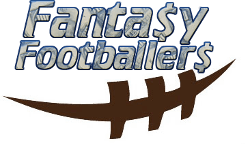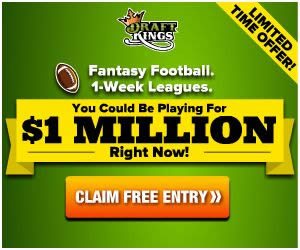This glossary covers some of the common definitions and slang in used in sports betting.
Action – Any type of bet.
Against the Spread (ATS) – Taking or laying a certain amount of points in a game as opposed to betting on a game straight-up. Team records can be tracked ATS. For example, if an NFL team went 10-6 ATS in a season, that team exceeded that week’s point spread 10 times versus not beating it 6 times.
Arbitrage – Betting both ways of the same game on different sportsbooks to take advantage of differing odds.
Backdoor cover – When a team unexpectedly scores points late in a game to cover the point spread.
Bad beat – Losing a bet that had a strong expectation of winning.
Bankroll – The total amount of money available to bet with for any period of time.
Book – Short for sportsbook which is an establishment that offers sports betting.
Bookie (Bookmaker) – Someone who offers odds, bets, and charges vig.
Buying Points – Paying an additional amount to adjust the posted odds to a more favorable number.
Chalk – The favorite pick in a game.
Closing line – The final line before a game starts.
Consensus pick – A favorite pick from an accumulation of multiple sources.
Contrarian Betting – Refers to betting against the public. Contrarian bets on a team where a high percentage of the public is betting against.
Cover – Refers to winning a bet either by exceeding the point spread of the favorite or coming under the spread for a dog bet.
Dime – A bet of $1,000.
Dog – Short for underdog. The team expected to lose a game.
Dollar – A $100 bet.
Draw – Also known as a push. If a game bet ends exactly on the spread, there is no winner or loser. Bettors receive their original bet back in this case.
Edge – Sports bettors might think they have an advantage on a sportsbook if they think the books’ offered lines are incorrect.
Even Money – Odds that are considered even, and do not pay any vig. For example, a bet of $1 to win exactly $1.
Exotic – Any type of wager other than a straight or parlay bet.
Favorite – The team expected to win a game.
Fixed – Refers to a game where cheating is involved. Usually when someone directly involved in a game has the opportunity to alter the
end results, to give an unfair advantage to a particular side of a bet.
Field – Refers to all teams and/or players that are specifically excluded from an original list. For example, bettors that are betting that a particular team will not win a title are betting on the “field”.
Futures – This refers to a long-term bet on a future event result. For example, bettors can bet on a Super Bowl winner before the season starts. Bettors win at the end of the season if that team does win the Super Bowl.
Handicapper – Someone who attempts to predict the winners of a game.
Handle – The amount of money taken by a book.
Hedging – Betting the opposing side of your original bet, to either protect a profit or minimize potential loss.
Hook – Refers to a half-point on a game. A -3.5 favorite is the same as the favorite “laying three and a hook”.
Juice – The fee that sportsbooks charge for placing a wager. This is also known as the vig or vigorish. Usually this amount is 10%.
Limit – The maximum amount of money a sportsbook will take on a wager.
Lines – Same as odds.
Middle – This occurs when bets on both sides of a game can win both bets. For example, with bets on both Team A +9 and Team B -7.5 of the same game, both bets win if Team B wins by 8 points, as both bets are covered.
Moneyline – A bet on a team in a game to win straight-up without point spreads. The spreads are replaced with odds.
Nickel – A bet of $500.
Oddsmaker – Same as linemaker. Someone who sets the odds for a book.
Off the Board – A game or event that is unavailable to bet on. This usually occurs due to an uncertain injury status of a key player(s).
Over/Under – Also known as the total. This may refer to the total combined points that will be scored in a game or the total wins for a team in a season.
Parlay – A bet consisting of multiple bets (at least two) and combines them together to make a single wager. All bets in the parlay needs to cover to win this type of bet. If one of the bets in the parlay is a push, but all other bets cover, the parlay pays out the odds as if the push bet was not made. For example, a 4 game parlay pays 13 to 1 odds. If 3 of these games cover (wins) and the 4th game pushes, the parlay pays out 6.5 to 1 odds, as if this was now a 3 game parlay. Parlays are high risk/reward type of bets.
Pick ‘Em – A game in which neither team is favored. There is not point spread for these games.
Point spread (or “spread”) – The number of points the favored team is favored by over the underdog.
Prop Bet – Short for proposition bet or an exotic bet. This is a bet on anything other than the outcome of a game. Common prop bets may include an over/under on points scored, passing yards for a QB, receptions for a player, etc.
Push – This occurs when a bet ends without a winner. For example, this happens if the favorite wins by the exact spread amount, like a bet on the Rams at -3 ends in a push if the Rams win the game with a final score of 13-10. In this case, all bet amounts are refunded.
Reverse-Line Movement – Betting line movement that contradicts the public betting percentages. For example, if a team is receiving 70% of the public bets as a -7 point favorite, yet this line drops to -6.5, this is an example of reverse line movement. This would indicate that sharp money is shorting this team.
Return on Investment (ROI) – A performance measurement used to determine the return rate of an investment.
Runner – Someone who places bets for another person.
Sharp – A professional, successful sports bettor.
Spread – Short for point spread.
Square – A casual gambler.
Steam – A sudden, drastic line change on a game due to a recent circumstance. This may occur when a large amount of money is simultaneously bet on a particular side, for whatever reason.
Teaser – A bet in which you are able to adjust the point spread or total for a game or multiple games. The more the spread is adjusted to the bettor’s favor, the lower the payout becomes. All games must cover to win this type of bet.
Total – Same as over/under.
Tout – Someone who sells their or offers their picks to others.
Underdog – Same as dog. This is the team that is expected to lose a game.
Units – This refers to a standard monetary measurement. For example, if you bet $20 a game, in this case, a unit is the $20 bet amount.
Vig/vigorish – Same as juice. The commission the bookie or bookmaker charges for wagers.
Wager – Any type of bet.
Submit your review | |


